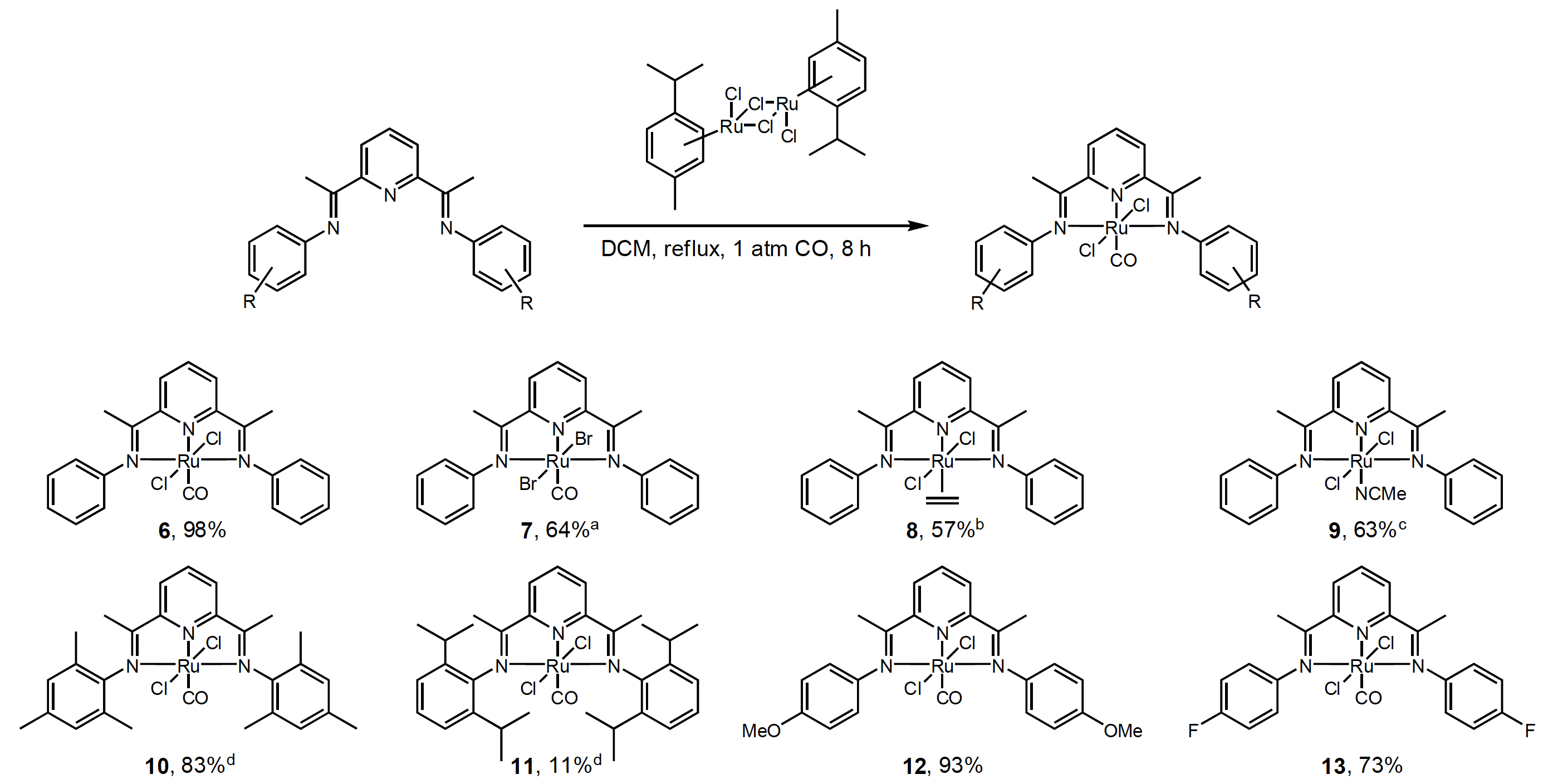Synthesis of Ruthenium(II)-2,6-Bisiminopyridyl Complexes for C-H Amination of Sulfamate Esters
Bon, J. L., Blakey, S. B.
Heterocycles,
2012, 1313-1323; 10.3987/COM-11-S(P)64

11/2011
One of the central drives of the CCHF is the design, synthesis and assessment of new catalysts, as this has the potential to not only improve the efficacy of established methods but also reveal new transformations and selectivity profiles.
A family of ruthenium(II) 2,6-bis(imino)pyridyl complexes have been developed as a novel catalyst framework for C-H amination. Their synthesis and evaluation is herein described.
The reactivity of these catalysts is heavily dependent upon the electronics of the ligand. These complexes are capable of functionalizing the benzylic protons of sulfamate esters with good conversion. It is anticipated that the lessons learnt from the study of these ligand and catalyst systems will inform future generations of catalyst development.